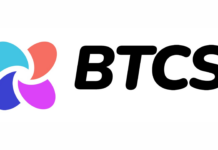There was a time, not long ago, when someone would have looked puzzled and asked you what you meant if you asked them to invest in cryptocurrencies. Crypto as we know it became a thing back circa 2008 when the entity known only as ‘Satoshi Nakamoto’ unveiled the concept of Bitcoin to the world.
The idea of digital currencies wasn’t new or particularly novel at the time of Nakamoto’s revelation. The concept of digital currencies had in fact been postulated as far back as 1983. Technology limitations and other issues meant that financial digital assets remained in a conceptual form more or less until Bitcoin emerged.
Bitcoin started life as little more than a digital curiosity for a closed bunch of hardcore techno-enthusiasts to play and tinker with. With little or no intrinsic value, Bitcoin remained on the fringes of the financial ecosystem for a long time. Bitcoin grew and evolved to become the king of crypto if such an honour can be bestowed on any one currency, but there are many others vying for a place in the top. But to understand cryptos and the problems posed by them, we must first understand the concept of money, and what this necessary evil represents in society.
Real vs. Digital: The Dilemma Of A Future Past
Le petit argent, the French call it. They even made a movie about it, Small money, Loose change, you get the idea. Now, imagine a world without any of that. Real money, that is. Imagine a world where banknotes and coins are relics of an age long since past, now neatly catalogued and displayed inside glass exhibit cases in a dimly lit museum wing labelled Curiosities of our Ancestors.
Imagine the demise of money, an extinction event of greater magnitude and significance than the untimely exit of dinosaurs from the Earth stage. Money, in itself, is largely worthless. It is simply a piece of printed paper or cheaply made coin used as a token to represent a given transaction.
Yet, despite its apparent insubstantiality, few things stand shoulder to shoulder to absolute reality today than cold hard cash. From bankers to retailers, craftspeople selling their wares, or agents of the nefarious underworld, the undeniable reality of money speaks loud and clear. Today’s world is bound by monetary ties, and cash flows like lifeblood around these binds.
But what if one were to shuffle these mortal coils, as Hamlet would put it? Can we do it? Should we do it? Would we better off without the very thing that enslaves us from birth?
Problems Faced By The Crypto Industry
Cryptocurrencies are most certainly a sign of the times. The last decade has seen a lot of turmoil in the world’s monetary systems. Financial giants came tumbling down in the crash of 2007. Cryptocurrencies emerged from the ashes of a ruined global economy, offering an alternative to the financial mechanisms that caused the crash in the first place.
However, the crypto ecosystem is not without its problems. Issues of instability, volatility, and scalability have yet to be decisively resolved. While there is no such thing as a crypto panacea, nor does a single solution exists for all these problems. There is no silver bullet, but there are specific solutions for specific problems. And one of these specific problems is the inherent risk and uncertainty posed by any crypto trading operation. CryptoFollow has devised a decentralized platform to bring investors and traders together into a single, cohesive environment that minimizes this risk.
The CryptoFollow Solution
In a “traditional” financial market environment, the management of money relies on centralized banking done in a single financial institution; the Federal Reserve System in the United States, for instance, the Bundesbank in Germany, and so on. Officials within these organizations place a value on the country’s currency based on market demand, fluctuations, and other economic factors, and print more or fewer banknotes to regulate the flow.
But centralization itself poses a problem, insofar as it creates a single point of failure. By removing this factor alone, cryptos enact a secure and transparent environment where transactions become immutable and cannot be tampered with.
Yet, the crypto industry is plagued by other issues, such as inflated claims, time constraints, and most of all trust (or lack of). Inflated claims for example, may be used to effectively falsify the economic worth of a particular crypto project, with the sole purpose of luring investors. And traditional trading markets are usually regulated by a 9-5 mentality, five days a week, which means that investors might miss on great investment opportunities.
Overall, the crypto market is permeated by a perceived lack of trust, due to scams and other scandals involving cryptocurrencies. CryptoFollow addresses these problems through an incentivized, decentralized platform backed by the EOS Blockchain, so Investors and Investment Professionals can interact and trade in a risk-minimization ecosystem.










